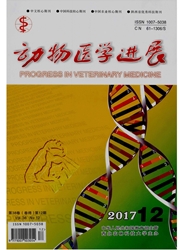

 中文摘要:
中文摘要:
病毒受体是由宿主细胞自主编码、调控和表达的一类特殊的蛋白质,是宿主细胞膜的重要组成部分之一,它能够介导病毒与靶细胞特异性结合,并促进病毒侵入或感染宿主细胞。病毒受体不仅有着其正常的生理功能,还是病毒致病性的关键因素之一,与病毒的入侵途径、扩散方式及发病特点等有着密切的关系。由于病毒受体研究起步较晚,许多病毒感染宿主细胞的机制至今仍不明确,所以,病毒受体的研究已成为相当活跃的研究领域。近年来,随着人们对各种病毒研究的不断深入,其受体的发现越来越多,但其种类繁多,分类复杂,为相关的研究工作带来了许多不便,在此,通过对近年来发现的受体进行系统的阐述,以方便更多的人更好地了解病毒受体。
 英文摘要:
英文摘要:
The virus receptors are composed of a special class of proteins, which are independently coded, regulated and expressed by host cells themselves. They are the important components of the host cell membrane. They not only mediate the virus entry into the specific ceils but also promote the virus to in- vade or infect host cells. Virus receptor has normal physiological function and is one of the key factors of virus pathogenicity. It has close relationship to virus invasion pathways, spread model and clinical fea- tures. However, the research of virus receptor starts late, many kinds of viruses infected cells' mechanism are still not clear. As a result, the study of virus receptor becomes a very active research area. In recent years, with the deep research of various viruses, more and more receptors were found. But its variety and complex of classification bring a lot of inconvenient for researchers. The paper summarized the recently identified receptors, in order to make a better understand of virus receptors.
 同期刊论文项目
同期刊论文项目
 同项目期刊论文
同项目期刊论文
 The characteristics of synonymous codon usage in the initial and terminal translation regions of enc
The characteristics of synonymous codon usage in the initial and terminal translation regions of enc 期刊信息
期刊信息
